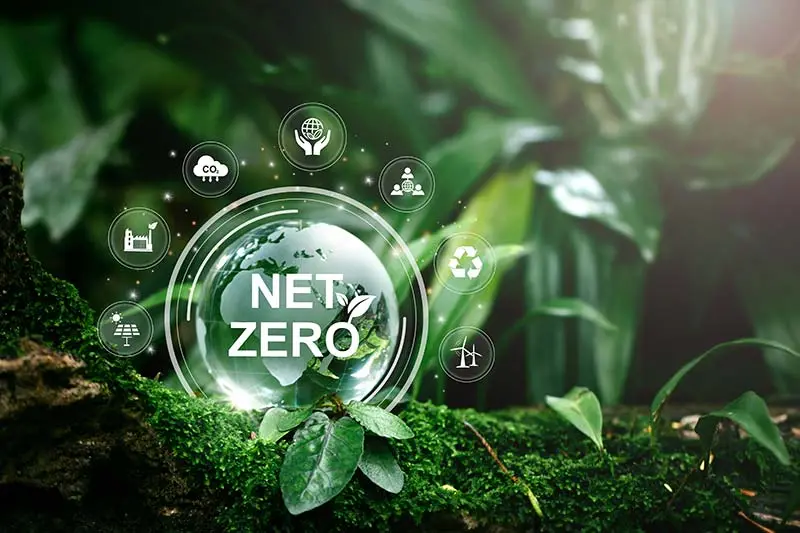In an era where climate change is an imminent threat and global temperatures continue to rise, the race towards a net-zero carbon emissions future has never been more critical. Governments, businesses, and individuals worldwide are recognizing the need to take immediate action to mitigate climate change. However, despite increasing awareness and commitments to sustainability, some organisations are still moving slower than they should be on the path to achieving net-zero emissions, particularly concerning Scope 3 emissions. This blog aims to shed light on the key reasons behind this lag and offer insights into how organisations can accelerate their efforts.
What is Scope 3 Emissions?
Before diving into the reasons for organisations moving slowly toward net zero and Scope 3 emissions, let’s define Scope 3 emissions. The Greenhouse Gas Protocol, developed by the World Resources Institute (WRI) and the World Business Council for Sustainable Development (WBCSD), classifies greenhouse gas emissions into three scopes:
- Scope 1: Direct emissions from owned or controlled sources, such as fuel combustion in company-owned vehicles and facilities.
- Scope 2: Indirect emissions from the generation of purchased electricity, heat, or steam.
- Scope 3: All other indirect emissions that occur in an organization’s value chain, including emissions from the supply chain, transportation, product use, and disposal.
Now, let’s explore the reasons why some organisations are slow in addressing their Scope 3 emissions and working toward a net-zero future:
- Lack of Data and Measurement
Many organizations struggle to accurately measure their Scope 3 emissions due to the complexity and lack of transparency in their supply chains. Measuring indirect emissions is challenging, and it often requires cooperation and data sharing from numerous suppliers and partners. The absence of standardized and accessible data makes it difficult for organizations to set clear targets and strategies for emissions reduction.
- Short-Term Focus and Cost Concerns
Some organizations prioritize short-term financial goals over long-term sustainability commitments. Achieving net-zero emissions often involves significant upfront investments in renewable energy, energy-efficient technologies, and carbon offset programs. While these investments can lead to long-term savings and competitive advantages, they may not align with short-term profit-driven agendas.
- Organizational Silos
Organisations may struggle to mobilize internal support for sustainability initiatives due to fragmented decision-making processes and siloed departments. Effective climate action often requires cross-functional collaboration and the involvement of various departments, from procurement to operations, which can be hindered by internal barriers.
- Regulatory Uncertainty
Changes in climate-related regulations and policies can create uncertainty for organizations, especially those operating in multiple regions or countries. The lack of consistent and predictable regulatory frameworks can make it challenging for organizations to plan and execute their net-zero strategies.
- Complexity of Supply Chains
Global supply chains are often complex and intertwined, making it difficult to trace and control emissions throughout the value chain. Organizations that rely on numerous suppliers, each with its own sustainability challenges and commitments, may find it challenging to align all stakeholders toward a common net-zero goal.
- Lack of Clear Incentives
Some organizations may perceive a lack of clear incentives for transitioning to a net-zero and Scope 3 emissions reduction strategy. Without external pressures or customer demand, they may delay necessary actions or initiatives to minimize their environmental impact.
Accelerating Progress Towards Net Zero and Scope 3
As Carbon Management is increasingly becomes the most important agenda item facing supply chain & procurement organisations, we have solutions to help you. Anvil Analytical Carbon Management provides instant visibility into your organization’s carbon baseline. Once established, our technology will define the next steps in your carbon journey.
Useful steps to take to overcome challenges and expedite progress towards net-zero emissions, organisations:
- Set Clear and Ambitious Targets: Organisations should set clear, science-based emissions reduction targets for Scope 1, 2 and 3 emissions[PI1] [JT2] [RB3] . These targets can provide a roadmap and motivation for sustainable actions
- Invest in Sustainability: Allocate resources to invest in energy efficiency, renewable energy sources, and sustainable practices. While upfront costs may be a concern, the long-term benefits often far outweigh the initial investments.
- Foster Collaboration: Encourage cross-functional collaboration within the organization to address sustainability challenges effectively. Break down silos and ensure that sustainability is integrated into the company’s core values.
- Engage with Suppliers: Collaborate with suppliers to collect data on emissions and encourage them to adopt sustainable practices. Implement supply chain sustainability programs and incentives.
- Stay Informed and Advocate: Stay informed about changing regulations and advocate for consistent and clear regulatory frameworks that support climate action.
- Communicate Sustainability Efforts: Communicate your organisation’s sustainability initiatives and progress to stakeholders, customers, and the public to demonstrate commitment and transparency.
Conclusion
The urgency of addressing net-zero emissions and Scope 3 emissions has never been greater. Organisations must overcome the challenges that are slowing their progress and commit to comprehensive sustainability strategies. By embracing transparency, investing in sustainability, fostering collaboration, and advocating for supportive policies, organisations can accelerate their journey toward a more sustainable, net-zero future and make a significant impact on the fight against climate change.
Anvil customer testimonial
“The Market needs this kind of analytical service from Anvil Analytical to drive progress”
Jo Ennion
Group Sustainability Lead at Sainsbury’s




